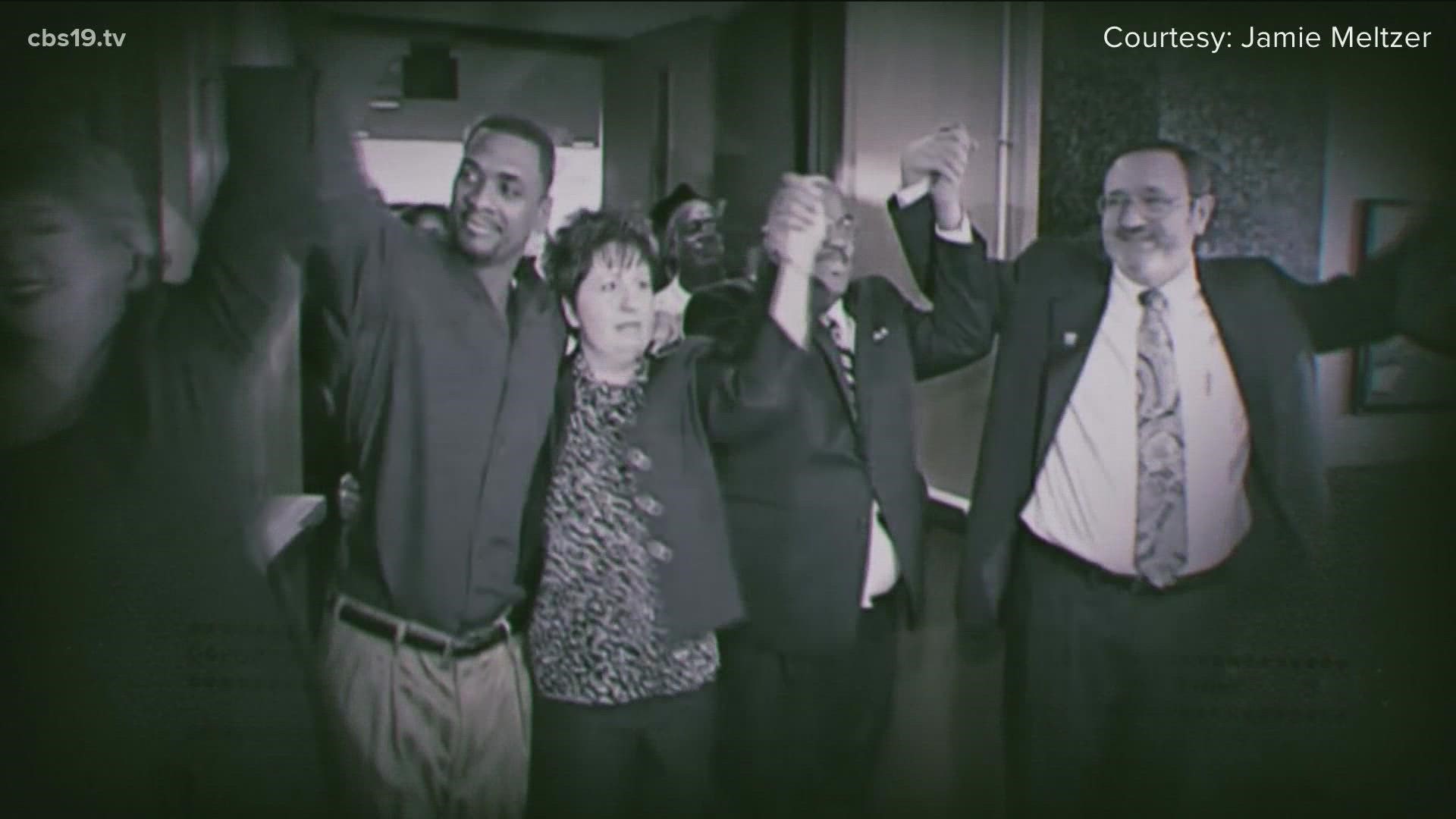TEXAS, USA — He was in the wrong place at the wrong time.
In 1997, Christopher Scott was picking up his friend in an upper-class Dallas neighborhood after a home invasion robbery ended in murder. Unknown to him at the time, Scott would take the fall for a murder he didn't commit.
Investigators said he matched the suspect's description.
"The description that came on police scanner was 'two African American men. One tall, one short, dark complexion with a low haircut'," said Scott. "We're like 'Dude, you just described half the NFL, professional basketball league... Every African American man walking down the street you just described."
His fate was sealed before he knew what went wrong.
"'You're going to jail for capital murder, stand up and put your hand behind your back'," Scott remembered. "I really thought the criminal justice system was gonna get it right. I thought 'Well, maybe I'm in jail 24 hours, 48 hours until everything gets investigated.'"
It would be 13 years before he walked free.
A Houston-based law firm study revealed more than 350 people have been exonerated in Texas since 1989 -- the most in the country. That comes out to 2,066 years lost.
Political science professor Frank Baumgartner says the capital murder conviction process can be severely biased.
"The death penalty suggest that sometimes it's reserved for those who have the worst lawyers, the worst bargaining strategies, or something other than the worst crime," Baumgartner said.
Scott's capital murder trial only lasted two hours and jury deliberation took 20 minutes.
"I've got an all-white jury panel," Scott said. "My judge was white, my lawyer white, the prosecutors white. I made a statement that, 'It's nothing of color in this courtroom but me and the furniture.'"
Being the only person of color in the room, Scott felt a fair trial was impossible.
Defense lawyer and law professor Michael Benza expanded on why Scott may have felt this way.
"Black and brown people are disproportionately represented on death row," said Benza. "Most critically, it's the race of the victim that is most determinative of who ends up on death row or not."
Black Texans represent 13% of the general population but 45% of the death row population according to the Death Penalty Information Center.
Scott prepared himself to die.
"How can I explain this to my kids?," Scott thought. "Like, 'Your dad may be killed for something he didn't do.'"
Scott spent the next the next 13 years at the Coffield Unit in Tennessee Colony. He remembered his days there vividly.
"You get up at 4:30 in the morning, you eat breakfast and then after that, at 6 a.m., you're in a wagon going to a field," Scott said. "There's no telling what you're going to pick. You may be picking, you know, cucumbers, cantaloupes, all kind of fruits and vegetables in a field. And it's over 100 degrees outside at this particular time."
Scott's freedom came when a man named Alonzo Hardy confessed to the murder. Hardy was already in prison serving a 30-year sentence for a separate robbery when he confessed to his barber at his prison's barber shop. Hardy didn't know at the time, the barber happened to be Scott's older brother.
"That's what he told my brother, 'Yeah, me and my friend robbed and killed this Hispanic drug dealer," Scott said. "And there's two guys in prison for that case,' Scott said. "Now my brother was like, 'Wait a minute.'"
Investigators served both men a polygraph test before convicting Hardy and setting Scott free.
Scott said it was an amazing feeling hearing the judge say, "Christopher Scott, you're actually innocent. You get to go free. What's the first thing that you want to do?"
The first thing he wanted to do was hug his mom. With one less innocent man behind bars, experts say the work continues.
Since his exoneration, Christopher Scott started a nonprofit organization called "House of Renewed Hope" to help others who have been wrongfully convicted.

